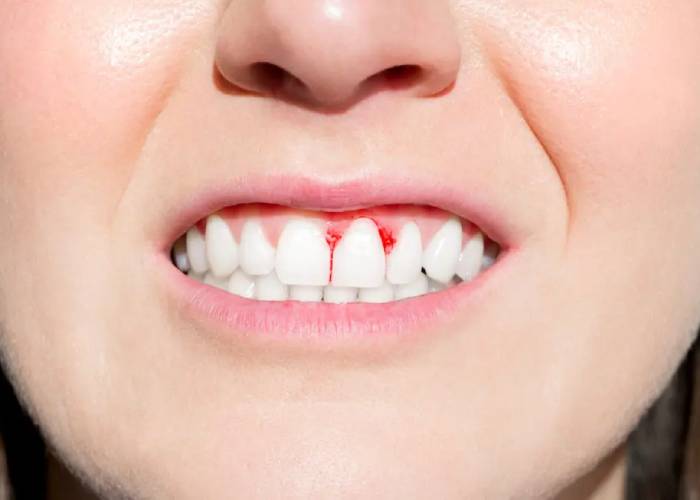The Best Ways to Ease Denture Discomfort
_0_o.jpg) Even the best-fitting dentures (as they all should be) take getting used to and it will take time to adjust to the strangeness of the new artificial teeth. It is only to be expected that there will be some initial denture discomfort and even mild pain, but this should pass quickly as the mouth and jaw become accustomed to the new oral configuration.
Even the best-fitting dentures (as they all should be) take getting used to and it will take time to adjust to the strangeness of the new artificial teeth. It is only to be expected that there will be some initial denture discomfort and even mild pain, but this should pass quickly as the mouth and jaw become accustomed to the new oral configuration.
However, in the early days of denture-wearing, the level of pain and discomfort can be extremely off-putting for many and it may be necessary to seek some level of denture pain relief.
Getting Dentures Fitted
Dentures are one of the most common methods for replacing lost or badly damaged teeth, but they are not the only solution. It is important to explore options and learn more about available ways to replace teeth and which is best in each individual case.
Step 1: Consultation. To decide if fitting dentures is the most suitable option, the dentist will carry out a thorough oral examination and evaluate the condition of the teeth and gums. Having decided on dentures, the dentist will then outline the available denture types and explain the next steps.
Step 2: Impressions. It will be necessary to create a mould of the teeth and take an impression of the jawbone in order to create a custom-fit set of dentures. This is a simple, painless procedure and usually completed in one session.
Step 3: Manufacturing. The moulds and impressions are sent to a specialist dental lab where the dentures will be manufactured. This can be a time-consuming process as it depends on the type of dentures being fabricated and the complexity of the work involved.
Step 4: First Fitting and Adjustments. During the manufacturing process, it may be necessary to attend a fitting appointment. This is very common as, despite best efforts, it is highly unlikely that the dentures will be a perfect fit the first time. Follow-up visits will likely also be required to make further minor adjustments.
Step 5: Denture Care. As with natural teeth, dentures also need care and attention. It is important to follow guidelines and cleaning instructions from the dentist to maintain the dentures in optimum condition. Over time dentures will need slight adjustments as the configuration of the mouth changes with age and regular check-ups at the dentist are crucial.
Getting used to a new set of dentures takes time and some denture discomfort at first is quite normal. Difficulty with eating and speaking may also be a problem in the early days. However, these issues should quickly resolve themselves and wearing dentures will soon begin to feel natural.
Denture Discomfort According to Type
There are three types of dentures (partial, intermediate and complete) and each has its own characteristics that may lead to some level of discomfort.
Partial dentures should cause few or minor issues as they only replace a single tooth or a few teeth. The mouth has little problem adjusting to the new false teeth and they should settle very quickly.
Intermediate dentures are used to replace a large number of teeth and therefore may take more getting used to. However, pain or discomfort should not be a major problem and should slowly dissipate over a few days or weeks.
Complete dentures replace multiple teeth, or even a full set, and can dramatically alter the configuration of the mouth. As a result, some pain and discomfort can usually be expected and may require the use of painkillers in the initial stages.
Denture Discomfort Across All Types
Regardless of the type of denture, there are three main causes of denture discomfort:
- Adjustment period
- Poor fit
- Bacterial build-up
The adjustment period is simply something that must be endured while poorly fitting dentures will require remedial action by the dentist or laboratory responsible. Changes in the structure of the mouth over time may cause fitting issues in the future. Bacterial build-up can be largely avoided by following the best care and cleaning procedures.
Strategies to Reduce Denture Discomfort
There are some simple measures that can be taken to reduce aches and pains in the early days of adjusting to your dentures:
- Stick to soft food
- Use dental adhesive for added support
- Clean dentures thoroughly
- Rinse dentures occasionally in warm water
- Only use a suitable mouthwash
Any discomfort or adjustment issues should fade after a few days. If, however, this is not the case, the matter should be discussed with the dentist who can determine the underlying cause of the problem or problems.
Having dentures fitted can be a simple and painless process and well worth the time and effort to restore your smile. Maintaining your dentures so they remain in prime condition is an important step in maximising the benefits of dentures and reducing any potential risks.
As a general rule, all early issues, including denture discomfort, are only temporary and will resolve themselves over the first few days. Once the initial phase is over, denture-wearing will become second nature and the new replacements should provide years of service, allowing you to talk, smile, laugh and eat naturally. If you are experiencing denture discomfort, chat to your dental practitioner about your options.

_0_o.png) Teeth grinding is a subconscious act that involves grinding, gnashing, or clenching your teeth. Also called bruxism, it is a condition that can cause pain in the jaw, headaches and damage to your teeth.
Teeth grinding is a subconscious act that involves grinding, gnashing, or clenching your teeth. Also called bruxism, it is a condition that can cause pain in the jaw, headaches and damage to your teeth.
 Did you know that gum disease (also known as gingivitis) is one of the most common oral health conditions in adults. Believe it or not, more than 47 percent of individuals above the age of 30 suffer from this ailment.
Did you know that gum disease (also known as gingivitis) is one of the most common oral health conditions in adults. Believe it or not, more than 47 percent of individuals above the age of 30 suffer from this ailment.








